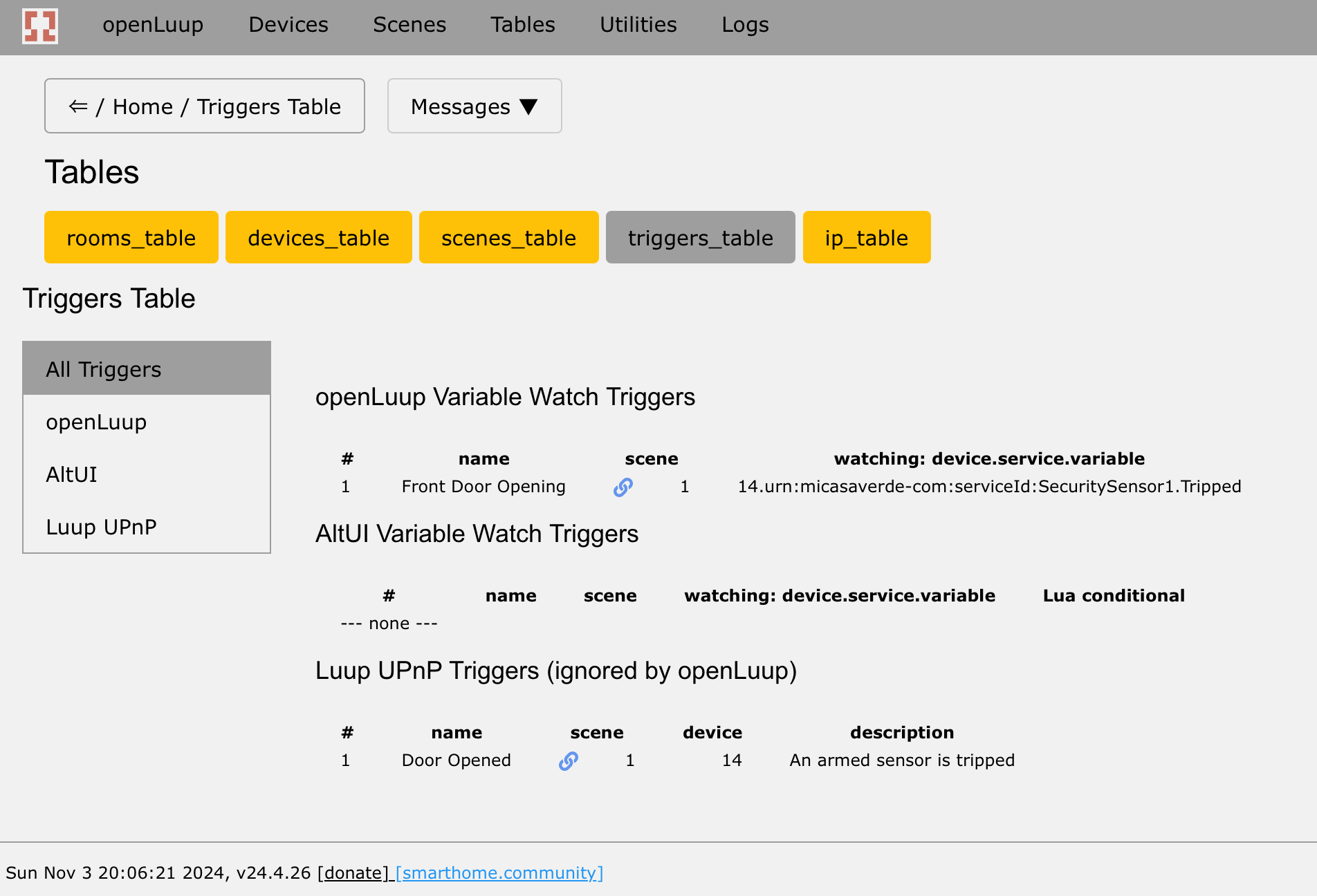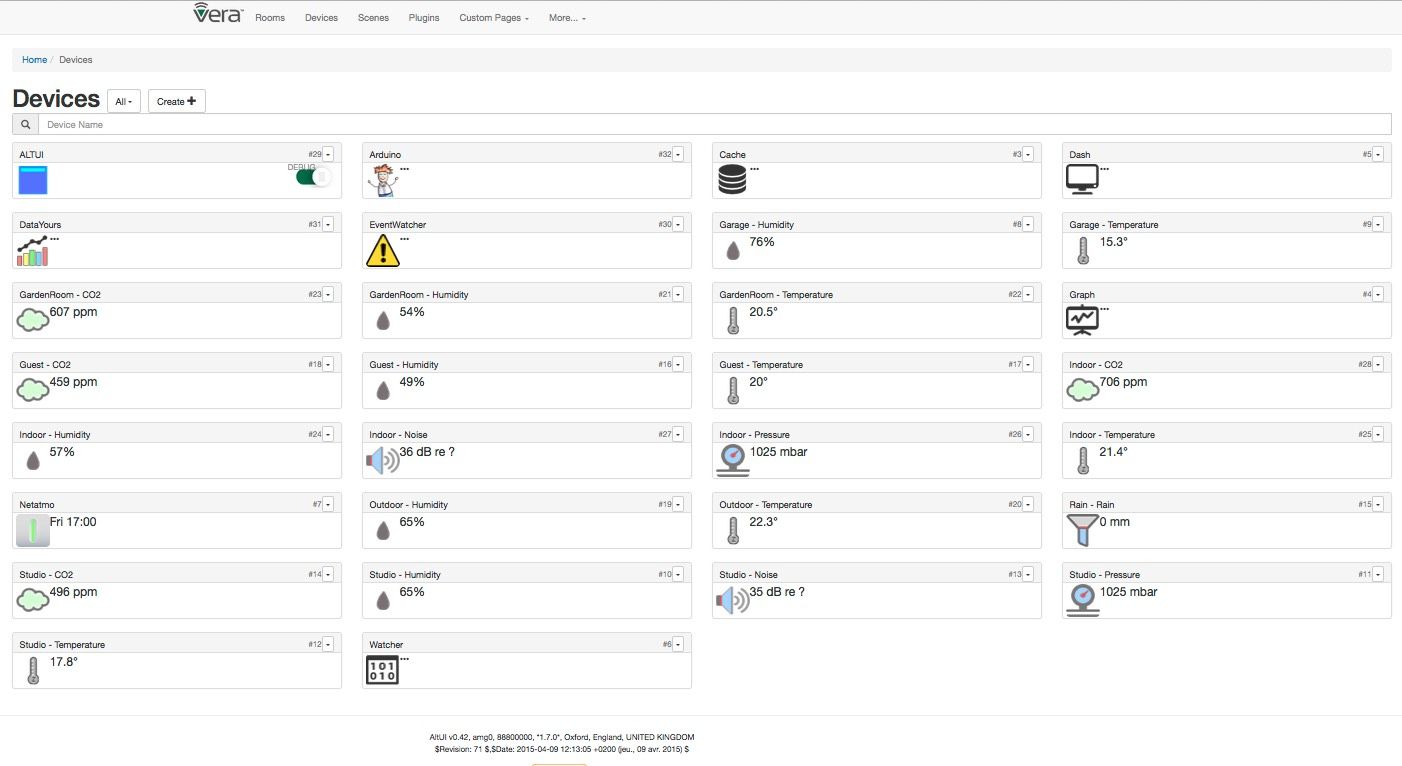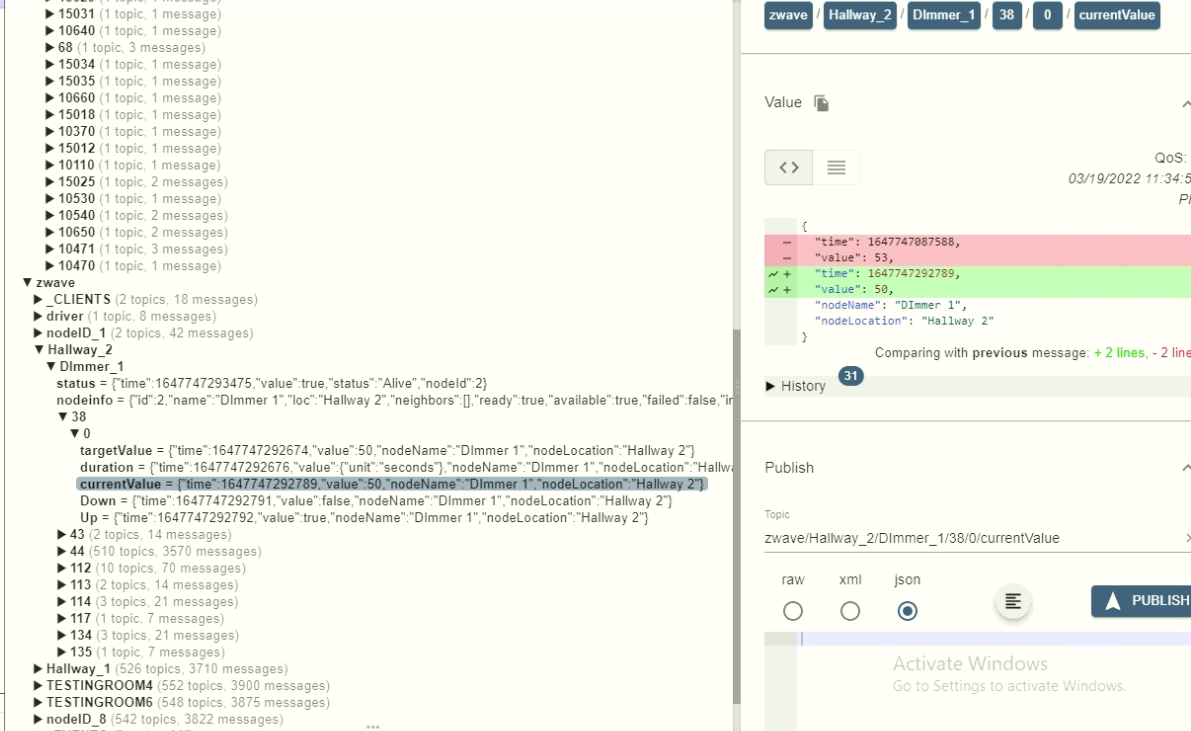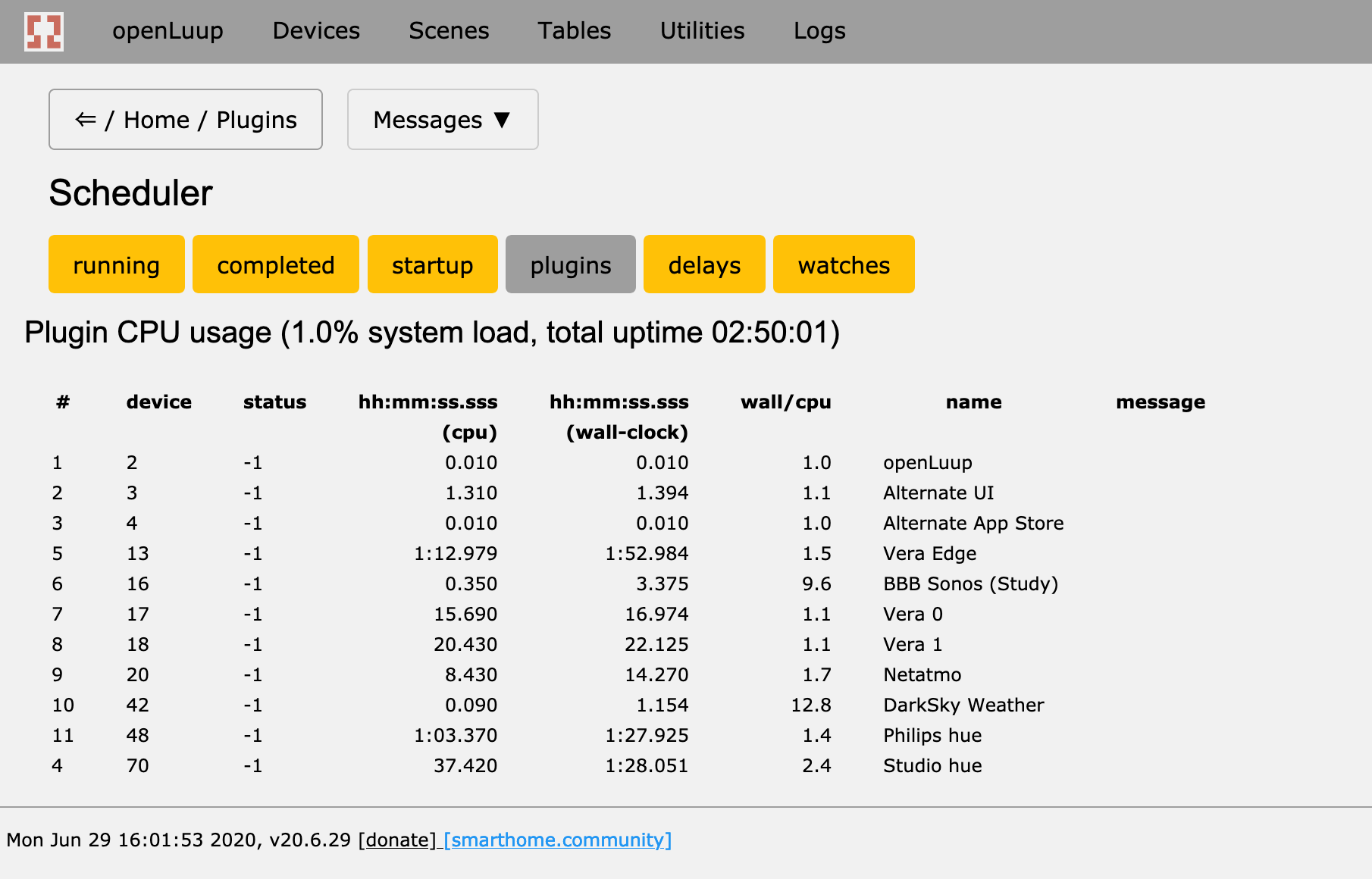Profiling Lua Code
-
Works great - thanks for this. And the top contenders are:
EKM meter plugin
AltUI
AltHue Philips Hue
VeraBridge
Paradox IP150 web page scraper
SMA Inverter
DataYoursEKM meter plugin, which I wrote and uses the 'incoming' stuff on a byte by byte basis - only runs every 30 secs - pathetic. Needs a rewrite: down another rabbit hole. Paradox IP150 web page scraper: another of mine. Runs every second. Been doing a rewrite in the hope of speeding it up but I don't think it will make any difference. SMA Inverter; also mine: runs every 5 mins. Uses UDP with sockets - not too bad. The EKM meter takes up 16 time more time than the SMA inverter.
I went through the openLuup code - I looked and looked - but couldn't find the bit of code where you alter the openLuup time to always be about 1/100,000 of the top contender.

It might be easier to purchase a new RasPi 4 to replace the current RasPi 3- - whoops, I hope it's not listening.
-
These:
- AltUI
- AltHUE
- VeraBridge
...all poll in one way or another, and may well spend time converting to/from JSON. Usual to see larger numbers here. Installing Cjson will help VeraBridge.
The openLuup plugin, itself, runs very rarely. What you’re not seeing is the openLuup system itself, scheduler, Historian, etc., but that is, of course, lightning fast.
-
No, just cereals and OJ on a weekday.
I’m surprised that DataYours makes the list. Although retrieving large amount of data and plotting take time, normal incremental database updates should be fast. You never moved to using the Data Historian? Not a top priority, though.
-
Data Historian? So much stuff and so little time. I should have got a CBUS system and paid for the man to come in when it needed tweaking. Living off muesli with fruit here.
Seriously though, I hoping people will be able to find ways to improve their plugins, based on the info provided in this new report. If it's representative of what's actually going on, it should be useful. However, it may not represent what's causing actual traffic jams ie demand for resources all occurring simultaneously and holding up the scheduling.
-
Data Historian? So much stuff and so little time. I should have got a CBUS system and paid for the man to come in when it needed tweaking. Living off muesli with fruit here.
Seriously though, I hoping people will be able to find ways to improve their plugins, based on the info provided in this new report. If it's representative of what's actually going on, it should be useful. However, it may not represent what's causing actual traffic jams ie demand for resources all occurring simultaneously and holding up the scheduling.
@a-lurker said in Profiling Lua Code:
based on the info provided in this new report. If it's representative of what's actually going on, it should be useful.
I’ve improved upon it (hopefully) by adding a wall-clock time (per plugin) measurement in the latest development release (v20.6.29). The measurements are as good as I can possibly make them, given the underlying tools (
os.clock(), socket.gettime()) and wrapped directly in thecontext_switch()routine which is the heart of the scheduler.In the example below, for a machine running three VeraBridges, amongst other things, you can see that two of the bridges are running at a ratio of 1.1, whereas the other is 1.5. There's a good reason for this, since that bridge is not using asynchronous HTTP, so wastes time waiting for the synchronous request response. I think that's also true for the AltHue plugin.
Indeed, the numbers are only long(ish)-term averages, and don’t necessarily represent transient hold-ups. I suspect any further diagnostic, like queue length statistics, would become too obscure to be useful.
-
Have tried out the new console Wall clock to CPU clock feature, etc. Very good addition.
So I find that one plugin has a Wall clock to CPU clock ratio of 352.7 to 1.
The plugin monitors the status of a AV device every 30 seconds by sending a HTTP request to the device and gets an XML response containing all the status. Now this AV device is fully powered off most of the day. So the HTTP call times out every 30 seconds (uses a one second request timeout). The plugin uses this to decide if the AV device is powered on or not.
So the question is: do these ongoing and regular timeouts sap resources to any significant degree or not. Likewise will it diminish overall I/O capability. If so, what is the best approach to improving this?
I looked at: http_async.lua but I don't see how it could help in this scenario.
-
If the timeout is on the HTTP request when sent, then async isn’t going to help (as it currently stands.)
Yes, the blocking request will steal one second in every thirty from the entire openLuup system.
Try using PING to test whether the device is up?




